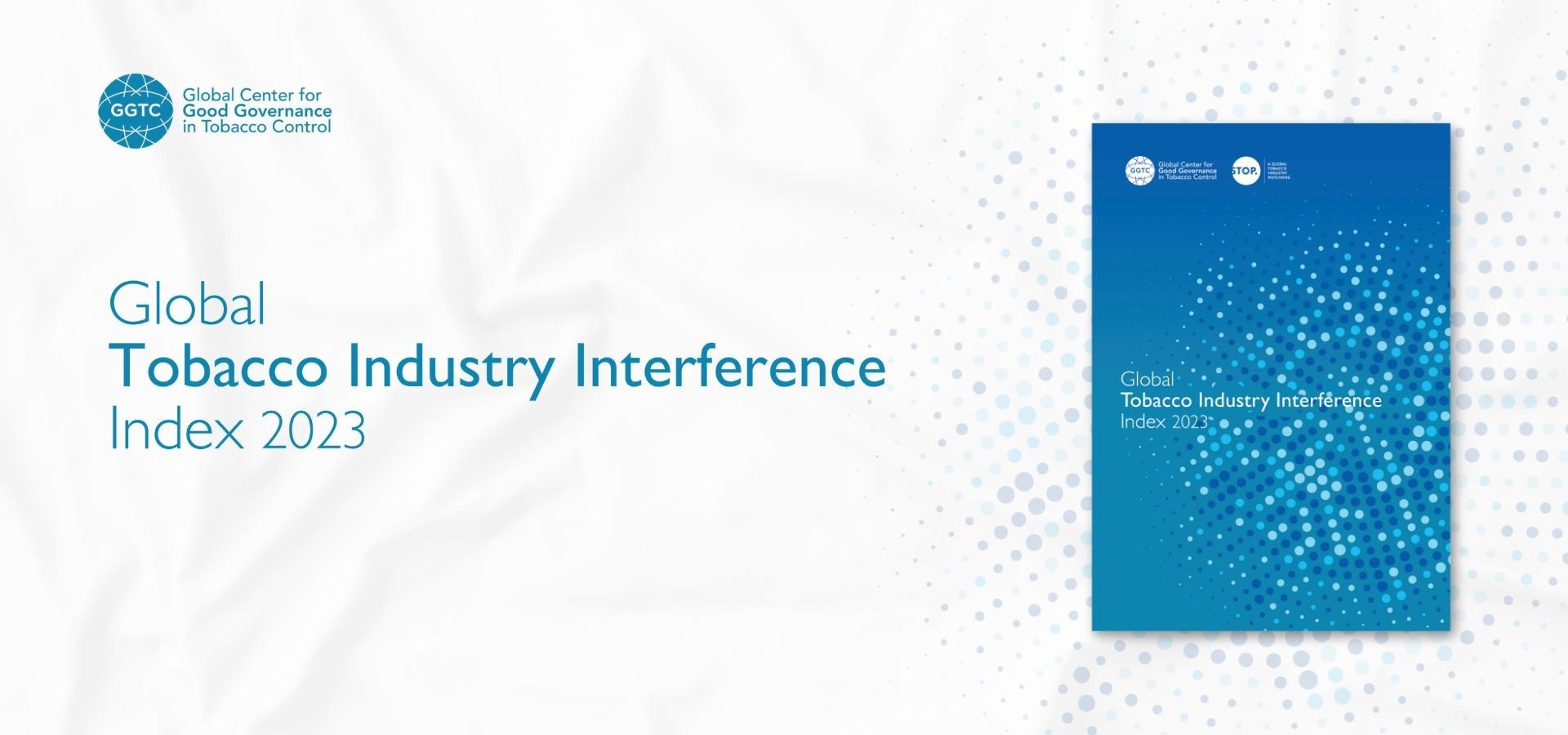About Global Tobacco Index

The Global Tobacco Industry Interference Index (Global Tobacco Index) is a global survey on how governments are responding to tobacco industry interference and protecting their public health policies from commercial and vested interests as required under the World Health Organization Framework Convention on Tobacco Control (WHO FCTC). The report was initiated as a regional index by the Southeast Asia Tobacco Control Alliance (SEATCA) in 2014. The Global Tobacco Index 2023 is produced by the Global Center for Good Governance in Tobacco Control (GGTC) with dissemination support from STOP.
Frequently Asked Questions
Global Tobacco Industry Interference Index (Global Tobacco Index) is a global survey on how governments are responding to tobacco industry interference and protecting their public health policies from commercial and vested interests as required under the World Health Organization Framework Convention on Tobacco Control (WHO FCTC).
The Global Tobacco Index rates countries on their response to tobacco industry interference through a survey questionnaire. The questionnaire contains 20 questions covering 7 indicators of industry interference on which countries are scored:
Indicator 1: The industry's participation in policy development
Indicator 2: Tobacco industry-related corporate social responsibility activities
Indicator 3: Benefits given to the tobacco industry
Indicator 4: Unnecessary interaction between government and industry
Indicator 5: Measures for transparency
Indicator 6: Preventing conflicts of interest
Indicator 7: Measures that prevent industry influence
The Global Tobacco Index uses the questionnaire developed by the Southeast Asia Tobacco Control Alliance (SEATCA) based on the Article 5.3 Guidelines. All information used in this report is obtained from the public domain. A scoring system is applied to make the assessment. The score ranges from 0 - 5, where 5 indicates highest level of industry interference, and 1 is low or no interference. Countries are ranked according to total scores provided by civil society groups. Hence the lower the score, the lower the overall level of interference, which augurs well for the country. Dependence on information from the public domain has its limitation and this limitation is acknowledged.
The Global Center for Good Governance in Tobacco Control (GGTC), based at the School of Global Studies, Thammasat University, leads the creation and production of the biennial report. It has been designated as the WHO FCTC Knowledge Hub on Article 5.3 and its activities focus on addressing obstacles to tobacco control from the tobacco industry and in empowering governments to advance tobacco control.
The Global Tobacco Index is supported by STOP (Stopping Tobacco Organizations and Products), a global tobacco industry watchdog whose mission is to expose the tobacco industry strategies and tactics that undermine public health.
STOP is funded by Bloomberg Philanthropies and is a partnership among the Global Center for Good Governance in Tobacco Control, the Tobacco Control Research Group at the University of Bath, The Union and Vital Strategies.
The Thai Health Promotion Foundation and the Bill and Melinda Gates Foundation also contributed to the development of the report.
- People have a right to know what their government is doing to protect health policy from vested interests and how the tobacco industry may be meddling in efforts to protect health in their country.
- The tobacco industry is purely driven by profit, not health. It seeks to influence policy to create an environment in which it can sell as many tobacco products as possible.
Undermining Article 5.3 of the WHO Framework Convention on Tobacco Control is a critical strategy for the industry because implementation would neutralize all other industry efforts to influence policy.
- The industry has no place at the policy table and across government. Any interactions should only be those strictly necessary to regulate the industry. Even these interactions should be disclosed so there is transparency regarding the industry’s influence.
This industry is uniquely dangerous: its business relies on producing, marketing and selling addictive and harmful products, with cigarettes known to kill more than half of all lifetime users. It markets these products to youth, to replace customers who quit or die.
- The spin we hear from tobacco companies is about protecting their business, not health. They continue to oppose policies that are proven to reduce smoking, like tobacco taxes.
The industry should be held accountable for the harm it causes, not allowed to influence policy and given incentives.
- While the world suffered during COVID-19, a well-resourced, harmful industry took advantage of an opportunity to gain influence, meddle in life-saving health policies and secure preferential treatment.
- Act to protect health, not the tobacco industry’s interests.
- Reject tobacco industry donations and lobbying.
- Parties to the WHO FCTC must do more to protect policy, across government.
- Governments that have not signed, ratified and implemented the treaty should do so.
- Any government, with political will, can implement protocols and codes of conduct that help improve efforts to protect policy.
